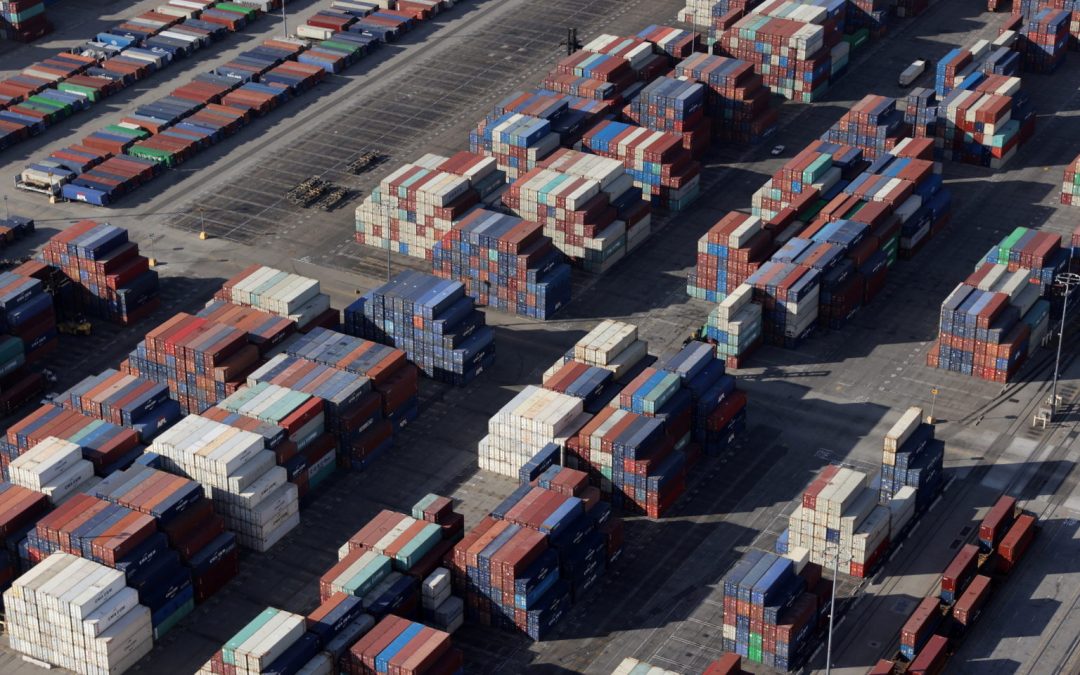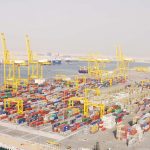The U.S. Federal Maritime Commission is launching three new initiatives aimed at assisting U.S. shippers and improving performance in the ocean supply chain.
The FMC is the independent agency of the U.S. government that overseas competition in the international ocean shipping supply chain.
The new inititiatives are the result of a more than two-year fact finding investigation led by commissioner Rebeccas Dye into issues in the international ocean supply chain—namely container shipping—stemming from the COVID-19 pandemic. In her final report released last week, Commissioner Dye’s included twelve recommendations to address the numerous concerns voiced by supply chain participants, including U.S. importers and exporters.
The FMC said the three new initiative announced Wedneday will provide enhanced assistance to shippers, continue to improve legaal and regulatory compliance, and focus on remedies to supply chain problems.
The initiatives, established at the direction of Chairman Daniel Maffei, include establishing new and permanent International Ocean Shipping Supply Chain Program, re-establishing the Export Rapid Response Team, and taking steps neccesary for carriers, marine terminal operators, and operating ports to employ a designated FMC Compliance Officer.
International Ocean Shipping Supply Chain Program
Many of the problems and frustrations U.S. shippers have experienced during the pandemic have been related to the surge in cargo volumes that has overwhelmed the capacity of the nation’s supply chain infrastrucure since approximately July 2020 as the economy adjusted to pandemic life.
“The need for a dedicated International Ocean Shipping Supply Chain Program grows out of the recognition that there are longstanding, systemic problems and shortcomings in the networks and facilities serving America’s ocean commerce,” the FMC said in a statement. “These legacy issues contribute to disruptions and exacerbate problems when shocks to the system occur. The International Ocean Shipping Supply Chain Program will allow the Commission to identify where issues exist in the supply chain and offer proposals for steps that can be taken to remedy impediments to the free flow of shipments.”
According to Dye’s final report, the program would ideally include a dedicated office for studying the growing needs and issues in the U.S. supply chain and propose solutions to challenges.
Rapid Response Team
In the past, the FMC has used rapid response teams (in the FMC’s Office of Consumer Affaris and Dispute Resolution (CADRS)) to quicly address and resolve emergency commercial disputes. However, these programs have depended on CEO-level participation from the carriers, which unfortunately has waned over the years. Commissioner Dye recommended that the FMC should revive a rapid response team process that involves ocean carrier CEOs, and she has already obtained committments from ocean carriers for the program. “This program will ensure that the most serious and time-sensitive issues are addressed and resolved quickly.
“U.S. export shippers have been particularly challenged by both supply chain disruptions and ocean carrier policies and practices that can sometimes make it difficult to meet deadlines to get cargoes aboard ships in a timely manner. As Commissioner Dye recommends, bringing back the FMC Export Rapid Response Team will provide a dedicated resource for shippers to use in resolving emergency commercial disputes,” said FMC Chairman Daniel Maffei.
FMC Compliance Officer
Throughout her fact finding investigation, one of two main concerns Commssioner Dye heard about from supply chain stakeholders was related to excessive demurrage and detention fees levied by ocean carriers (the other being rising shipping costs). In May 2020, the FMC issued its Interpretive Rule on Demurrage and Detention, providing guidance and clarity as to how it assessed the reasonableness of demurrage and detention practices under the Shipping Act. Central to the FMC’s interpretive rule was that detention and demurrage fees must facilitate freight fluidity. However, some carriers still run afoul of legal and regulatory requirements in this area.
To aid with compliance, Commissioner Dye recomended a new regulatory requirement that all ocean carriers and marine terminal operators designate a compliance officer who would reported directly to the U.S.-based CEO and be responsible for FMC compliance.
“Compliance with Commission regulations and the statutes it administers is not voluntary or discretionary. Ocean carriers, marine terminal operators, and operating seaports designating an FMC Compliance Officer who reports directly to the senior-most U.S.-based executive will aid in ensuring industry-wide observance of legal and regulatory requirements,” the FMC said in a statement.
Source: gCaptain






